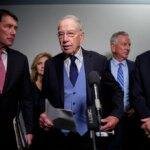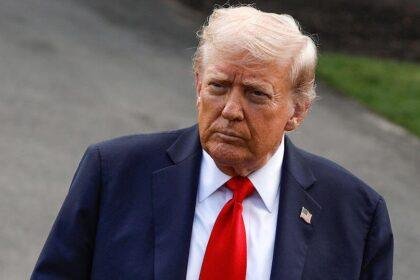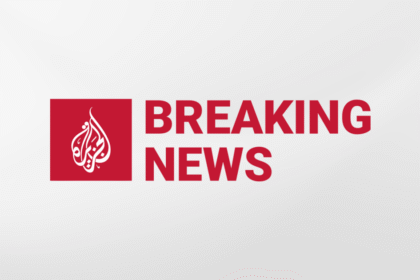Legal Authority of National Guard Deployment Under Scrutiny Amid Protests
As tensions rise across the United States, President Donald Trump’s administration has taken significant steps to deploy National Guard troops to various cities, including Portland, Oregon, and Chicago, Illinois. This move aims to quell ongoing protests and enhance immigration enforcement. The deployment of National Guard units has also recently occurred in Los Angeles and Washington, D.C., raising questions about the legal framework governing such actions.
Understanding the Legal Framework
The deployment of military forces for domestic law enforcement is a contentious issue in American governance, primarily governed by the Posse Comitatus Act of 1878. This federal law restricts the use of the U.S. military in civilian law enforcement roles, reflecting a long-standing American belief that military involvement in civilian affairs poses a threat to personal liberties.
However, exceptions to this law exist. The National Guard, a reserve force that can be activated by state governors, is not subject to the same restrictions when operating under state authority. This means that during emergencies, such as natural disasters, governors can deploy National Guard troops without violating the Posse Comitatus Act.
Federalization of the National Guard
When the National Guard is federalized, it comes under the command of the President, and the Posse Comitatus Act applies. In the current context, the Trump administration has invoked Section 12406 of Title 10 of the U.S. Code, which allows the President to deploy state National Guard troops to repel invasions, suppress rebellions, or enforce federal law. This legal framework is crucial as it provides a pathway for the President to act while ostensibly adhering to the restrictions imposed by the Posse Comitatus Act.
The National Guard’s role in this scenario is particularly complex. Unlike state National Guard units, the District of Columbia National Guard reports directly to the President, giving Trump full authority to activate them as he sees fit. This was notably exercised in August when Trump claimed that crime in Washington, D.C., warranted such action, a claim that was disputed by local officials.
Judicial Challenges to Deployment
The legal landscape surrounding these deployments is fraught with challenges. On October 4, a federal judge temporarily blocked the deployment of 200 Oregon National Guard troops to Portland, stating that Trump’s justification for the deployment was “simply untethered to the facts.” U.S. District Judge Karin Immergut ruled that there was insufficient basis for invoking Section 12406, highlighting the ongoing legal battles that could shape the future of National Guard deployments.
Interestingly, this ruling contrasts with a decision from the 9th U.S. Circuit Court of Appeals, which previously upheld Trump’s authority to send National Guard troops to Los Angeles amid violent protests. This inconsistency in judicial interpretation underscores the complexities of the legal framework governing military involvement in domestic affairs.
In a further development, the state of Illinois and the city of Chicago filed a lawsuit on October 6 to block the deployment of National Guard troops to Chicago, adding another layer to the ongoing legal disputes surrounding these actions.
The Insurrection Act: A Potential Path Forward
In light of these legal challenges, Trump has hinted at the possibility of invoking the Insurrection Act, a more expansive legal tool that allows for military intervention in domestic unrest. This act serves as an exception to the Posse Comitatus Act and has been invoked in U.S. history during times of significant civil unrest, such as the civil rights movement in the 1950s and 1960s.
The Insurrection Act can be invoked under specific conditions, including instances of insurrection, rebellion, or unlawful obstructions. Historically, it has been used 30 times, according to the Brennan Center for Justice, a public policy institute. Notably, former President George H.W. Bush invoked the act in 1992 to address riots in Los Angeles, illustrating its potential for addressing severe civil disturbances.
Trump’s administration could also receive an invitation from a state governor to invoke the Insurrection Act, which would further legitimize such a move. However, the President retains the authority to act unilaterally if he perceives a breakdown in law and order or believes military intervention is necessary to protect civil rights.
Historical Context and Comparisons
The current situation echoes historical instances where the military was deployed to maintain order during periods of civil unrest. The use of the National Guard during the civil rights movement, for instance, was pivotal in enforcing desegregation and protecting peaceful demonstrators. These historical precedents serve as a reminder of the delicate balance between maintaining public order and safeguarding civil liberties.
Moreover, the deployment of military forces in domestic settings raises ethical questions about the role of the military in civilian life. The American public has long held a skepticism toward military involvement in domestic affairs, rooted in the belief that such actions can undermine democratic principles and civil rights.
Conclusion
As the Trump administration navigates the complexities of deploying National Guard troops in response to protests, the legal and ethical implications of such actions remain under intense scrutiny. The interplay between federal authority, state rights, and the historical context of military involvement in civilian life will continue to shape the discourse surrounding these deployments. With ongoing legal challenges and the potential invocation of the Insurrection Act, the future of National Guard deployments in American cities remains uncertain, reflecting the broader tensions within the nation regarding law enforcement, civil rights, and the role of the military in domestic affairs.











